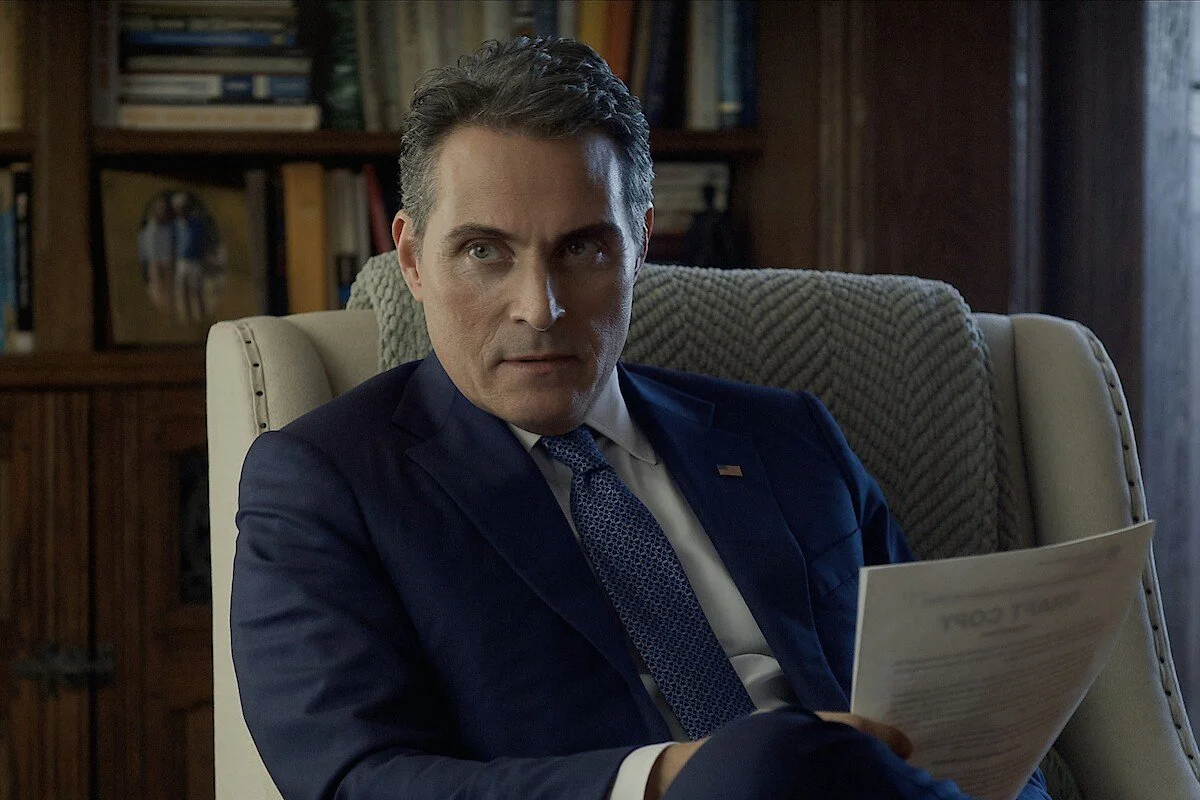What got you this far won’t necessarily get you where you need to go next.
My thoughts from a lightbulb moment The Diplomat.
People who know me well know that for me, there is no such thing as simply watching a TV series or reading a book or listening to an album. Is it something I can control? No. Is it unhinged? Maybe. Is it useful for my work as a communications obsessive and enthusiast? Yes.
It’s rare that I don’t have a million thoughts about it after consuming media of any kind, and often it’s about the body of work as a whole that I enjoy dissecting and connecting the dots with, often in real time and also very often for weeks (or months or years in some cases) after. During my casual viewing on the most recent season of The Diplomat on Netflix (I was lukewarm on the finale of the previous season, but I’ll watch anything Keri Russell is in), there was a moment, an almost throw-away comment, that made me stop and think “OMG this is it”.
As the protagonist, Ms. Russell’s character as Kate Wyler, US ambassador to the UK, and husband of current vice president Hal Wyler, tends to be critical of her husband’s behavior in his work. In this particular (and, for me, pivotal) scene, when she believes him to be making impulsive and risky decisions, she reminds Hal that what got him to where he is today isn’t what he needs for his current job. The needs of the role of VP of the United States are far different than that of a former diplomat (namely former US Ambassador to Lebanon and Iraq according to Wikipedia) who served abroad. What got him through his first role, won’t necessarily get him through his current one.
This is particularly interesting to me for a couple of reasons.
For one, Kate meets Hal earlier in his career, and very early in hers, where his bold risk-taking and fearless gambles were essential to the job he was doing. This means she has been there for his evolution (or lack thereof). Kate’s warning lands harder because she’s seen the full arc. She met Hal when his fearlessness was an asset, i.e. when breaking protocol and taking bold risks were what got him noticed. What once looked like bravery to her now looks like impulse; what once felt like conviction now reads as stubbornness in this new context. When she calls him out, she isn’t reacting to a single bad decision, she’s naming a pattern: that the way his confidence has turned into habit. That’s what made the moment so poignant for me.
Rufus Sewell, who embodies the character of Hal, says it best:
“There’s been a pattern of behavior. Every once in a while, he’ll throw caution to the wind. He does something with all the ingredients of heroism, or at least a dash of inspiration — something no one else has the nerve to do. A lot of it will work out. And it’ll be like, “Did you hear what Hal Wyler pulled off?” This is the quality that has made him a legend. But every once in a while, Hal will do something like that, and he won’t pull it off. The victims of his choices aren’t necessarily him.”
What I love about his quote is that it captures the paradox perfectly. The same instinct that builds a legend can also undo one. The line between courage and carelessness is often invisible until you cross it, and by the time you notice, it is often too late.
The other reason I found this interesting is because it feels counterintuitive in many ways. That’s what makes Kate’s observation so interesting to me, because it’s not just true for him, it’s true for almost everyone who rises fast. We get hired on the basis of what we’ve done in the past. We assume positions because of our experience. Yet as the responsibilities grow and evolve, it is not those same skills that are required. We are expected to acquire those new skills, and also know that we need to acquire them, and then put them into action. In these roles and situations, leaders are often building the plane as they are flying it, and that can feel really scary.
What makes this so difficult is that growth isn’t automatic. The further we move, the less feedback we receive and the more insulated we become from the signals that once kept us honest. Most successful people simply keep doing what worked before because it feels safe, familiar, and rewarded. As far as they are concerned, the evidence is there. But the truth is, every new level of responsibility, there is a new context that demands a different language, which is rarely sought out and honed. It requires deep and honest self-awareness, something that doesn’t develop by accident; it’s a discipline.
I can’t help but see versions of Hal everywhere: smart, brilliant founders, executives, high performers who are still relying on what once worked, without recognizing a need to do anything differently. They keep repeating what made them successful yesterday instead of learning what makes them relevant today (and more importantly, tomorrow).
From where I sit, the problem isn’t the behavior itself; this is the natural evolution and what might feel like the most logical way to continue. The real problem is a lack of awareness, and in many cases, the blindness to how the needs of their role have changed, and how they need to adapt. It's rarely obvious to the person, and often increasingly obvious to those around them. Communication, self-awareness, and intentional growth aren’t nice-to-haves at that level; they’re survival skills. What got you here won’t get you there, and the sooner that truth lands, the easier it becomes to evolve instead of repeat.
